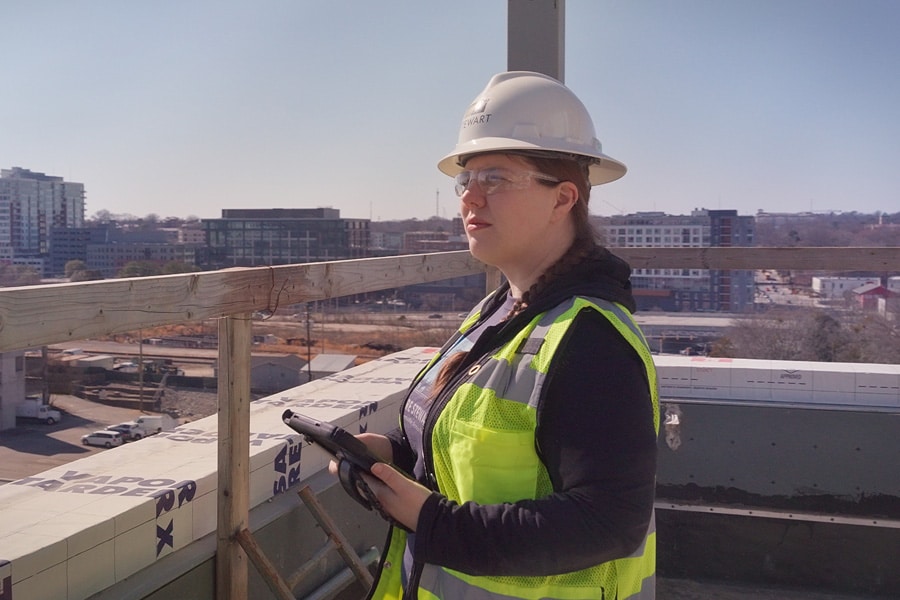Illustration by Wenjia Tang
From its home base in Beverly, Massachusetts, construction firm Connolly Brothers has thrived through five generations thanks in part to smart business savvy, happy customers who regularly return with new work and an ingredient that’s sometimes overlooked among family-owned construction businesses: the right ownership structure.
Launched by four brothers in 1880, the firm’s second generation of owners included a host of cousins. But it was one cousin—current President Jay Connolly’s great-grandfather—who ran the company’s day-to-day work and, over time, streamlined ownership so it was a smaller leadership team going forward.
“After the second generation, it became quite obvious and clear that for anyone to be part of the ownership of the company, they were going to work at the company,” said Connolly, who replaced his father, Stephen J. Connolly IV, as president in 2020, becoming the fifth generation to run the business.
Connolly Brothers made a transition that many more family-owned construction businesses could be moving toward soon. More than half of business owners are age 55 and up, according to the U.S. Census Bureau.
But many aren’t set up for long-term success. Only 30% surveyed have family business succession plans and less than half have written rules and guidelines for how the business should operate, according to PwC’s Global Family Business Survey 2021. What’s more, just 30% of family businesses survive the transition to second generation ownership, according to SCORE, a nonprofit small business mentorship network.
If family business owners want to keep the enterprise in the family or simply operating into the future, they must take time for succession planning. Here’s what experts say family businesses should do to prepare for the next generation.
Get help with communication
Communication is essential in any business arrangement, but it can be especially difficult in family-owned construction businesses where livelihoods and legacies are tied together and personal and work lives are constantly blurred. Connolly has a strong connection with his father, who remains an advisor to the business. “We can have an argument and then have dinner together the next minute and not think about work,” Connolly said.
But that isn’t the case for every family. That’s why experts often recommend working with an outside facilitator—a lawyer, wealth advisor or other business consultant—to help with those conversations.
Put your policies in writing
Plenty of family business owners don’t think they’re big enough to have a family employment policy or family business succession plan. But to ensure companies can transition through generations, experts say these documents are critical and ensure your intentions are clear.
According to PwC’s report, governance policies can include a vision and purpose statement for the company; a defined code of conduct; emergency and contingency procedures; entry and exit provisions for leaders who come and go; and conflict resolution procedures.
Some family businesses, experts say, even put in writing that younger generations are required to work elsewhere for several years or obtain a degree before they can start earning a paycheck from the family enterprise.
Shore up your paperwork
If you launched your construction business 20 years ago, a lot has likely changed in your life. That’s why it’s important to keep both personal and professional legal documents up to date, said Sam Brownell, founder of Stratus Wealth Advisors, which works with business owners on business continuity and family business succession planning.
Wills, stockholder agreements, trusts and other related documents are critical to ensuring the business has the proper tools in place to protect the family and its business going forward, especially in the case of disability, divorce or death, Brownell said.
Start ownership talks early
At Connolly Brothers, Jay Connolly and his brother-in-law, Thaddeus Minshall, the firm’s co-owner and vice president of real estate and development, are already thinking about whether their young children might be interested in taking over the business in the future.
“My hopes and dreams are that they have that interest,” Connolly said, “and I’m going to do what I can to encourage that want and desire to be part of the company. But by no means will I be forcing it. I also have to plan for the opposite of that.”
Indeed, never assume that the next generation is eager to take over, experts advise. Still, that doesn’t mean you can’t start the conversation early—even in grade school. A company, for instance, might set up a tour of a construction site for the family’s young children, allowing them to ask questions about the business and industry.
For young adults, regular family meetings can be a great way to educate them about the company’s future and emerging issues, experts say. These meetings can keep younger family members abreast of the company’s workings and help them decide whether they want to step in later.
Be ready for other owners
Not every family business, however, has a next generation—but that doesn’t mean the business has to shut down. Ownership transfer options include selling to a competitor or to employees, Brownell said. With employee stock ownership plans, for example, employees are allocated shares in the business.
“We strongly encourage all business owners to consider the employee ownership route,” Brownell said. “This ensures that the people who know the business best—your employees—are taking charge, and there are some great tax benefits for both the selling owner and the buying employees.”
At Connolly Brothers, it was never a foregone conclusion that Jay Connolly would become its fifth-generation owner. He graduated from Boston College and considered other opportunities. But the draw of family and legacy was strong—and he has no regrets. “It’s a huge amount of pride,” he said, “having your name on the door and knowing that that history is there and not wanting to be involved with it going away.”
















